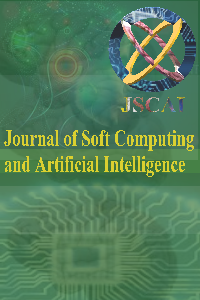
Journal of Soft Computing and Artificial Intelligence
Yazarlar: Fouad ZARO
Konular:Mühendislik
Anahtar Kelimeler:ANN,PSO,DSTATCOM,Voltage Profile
Özet: Recently the demand for electric power is increased due to increasing the residential and industrial facilities which may contain sensitive nonlinear loads that needed high power quality (PQ) on the distribution system to avoid malfunction operation. One main PQ issue is voltage profile improvement with acceptable voltage harmonic distortion. It should be regulated to be within acceptable standard levels. In order to improve the voltage profile, the distribution static synchronous compensator (DSTATCOM) is used with a developed control strategy. In this research, DSTATCOM control is developed based on artificial intelligent (AI) using the artificial neural network (ANN), which depends on optimum values obtained by using particle swarm optimization (PSO). The results of the simulation proved the superiority and robustness of the proposed control strategy of DSTATCOM for improving the voltage profile on the distribution system. The validation of results has been done by MATLAB/Simulink software package.